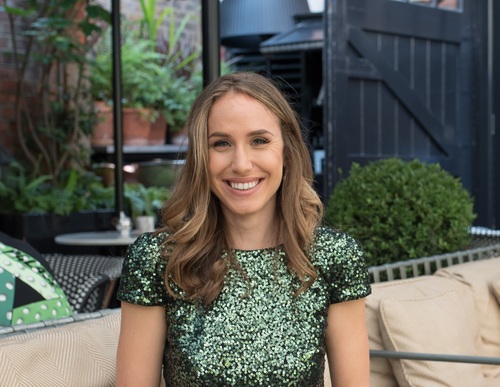Have you been duped? The Epidemic of Businesses Mis-Selling the Word ‘Coaching’

it can extremely challenging to distinguish between services of a professional coach or a mentor in-disguise.
• The professional coaching field is increasingly being misrepresented and mis-sold as mentoring.
• Consumers are having trouble identifying professional coaches in an over-saturated market
• Tracey Livingston, director and founder of global coaching company TraceyLiv Coaching & Training Ltd, offers her expertise on how you can spot a real coach from a mentor in-disguise
As a £2 billion global industry and growing, more and more businesses and service-providers are using the word ‘coaching’ to describe their titles, services and programs. However, there’s an increasing number who aren’t coaching their clients, they’re actually delivering mentoring services.
Tracey Livingston, director and founder of TraceyLiv Coaching & Training Ltd, calls these businesses, “mentors in-disguise – companies that label themselves as coaches but give their clients advice, guidance and action steps.”
She explains, “when a business misrepresents their services to consumers, they’re falsifying the coaching profession, costing the consumers a potentially high financial investment, and by branding themselves as coaches, ‘mentors-in-disguise’ are over-saturating the coaching market; when they should be in the mentoring/training space.”
For those looking to hire a professional coach, it can extremely challenging to distinguish between services of a professional coach or a mentor in-disguise. Tracey explains how businesses and entrepreneurs can recruit a suitable professional coach:
“Firstly, there are tens of thousands of certified, qualified coaches who provide deep and transformational coaching experiences for their clients. The best way forward is to understand the difference between coaching and mentoring. While both professions serve to support individuals to achieve their goals, the difference is in their approach and how they go about delivering the service. Sir John Whitmore states that “coaching is unlocking a person’s potential to maximize their own performance. It is helping them to learn rather than teaching them.”
How to distinguish between coaching and mentoring services:
Coaching
• Sessions are 100% client-led and client-driven. Clients speak about 80% of the time.
• The coach essentially ‘knows nothing’ and offers nothing – they will never share their own advice, guidance or their own experiences.
• The coach has a non-directive approach. They ask questions so the client can create their own goals, strategies, awareness, and actions.
• The coach asks powerful questions to help the client explore and transform their beliefs, habits, thoughts, and experiences.
• The coach does not need to be an expert in the client’s profession; they are a professional coach.
Mentoring
• The mentor is an expert and knowledgeable in the profession of the mentee -- The mentee seeks to learn from the experiences of the mentor to support them in their own profession.
• The mentor ‘has the answers’ and ‘the wisdom’ -- their primary role is to give advice, guidance and share their experiences
• The mentor is directive. They ask questions in order to guide the mentee on their goals, strategy, and actions.
• The mentor asks questions to understand the mentees situation and goes into helping solve their problems and create actions with them.
To conclude, both of these approaches are extremely useful and beneficial in their own ways. What’s more important, is that businesses take a step back and ensure that their programs and services accurately reflect whether they offer a true coaching or mentoring approach.
Tracey Livingston’s top tips on how to seek the ultimate professional coach:
1. Check their website for Coach-Specific Certifications, Qualifications and Training.
a. The International Coach Federation offers the only globally recognised independent credentialing programme. The ILM is another organization for coach training.
b. The coach should be able to provide background in the kind of training and certification they received. How many hours of coach-specific training have they done? (The baseline hours for the ICF is 66 hours). How many hours of coaching hours did they do? (ICF required 100 hours before certification) Did they receive mentoring during their program, and how many hours? Was it a combination of coaching, NLP and other specializations?
2. Book a Discovery Call.
a.When on the call, ask them about whether they lead with coaching or mentoring. Listen if they understand the difference.
b. When being coached, do you feel their approach is more coaching-specific or mentoring specific? Are they able to go deep with you and create new levels of awareness, or does it feel like a surface conversation? Are they trying to fix the problems for you? Are they jumping to give you advice or guidance, or are they allowing you to come up with your own actions and solutions?
3. Length of experience.
a. How long has the individual been coaching? How many hours of 1:1 and group coaching have they done? How many hours of coaching do they do every week? What are their testimonials?
For more information please visit: https://traceyliv.com
-ENDS-
For further information, images or comments from Tracey Livingston, please contact Amy Boreham on 020 3958 7195 or email Amy@kincomms.com or Thomas Gabbidon on Thomas@kincomms.com
This press release was distributed by ResponseSource Press Release Wire on behalf of Kin Communications2 in the following categories: Business & Finance, Media & Marketing, Public Sector, Third Sector & Legal, for more information visit https://pressreleasewire.responsesource.com/about.